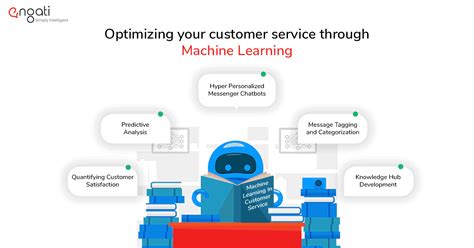Applicant testing services have become an essential tool for recruiters and hiring managers to evaluate the skills and abilities of job candidates. These services help streamline the hiring process, reduce bias, and improve the overall quality of new hires. However, to get the most out of applicant testing services, it's crucial to optimize their use. In this article, we'll explore five ways to optimize applicant testing services to enhance your hiring process.
1. Define Clear Testing Objectives

Before implementing applicant testing services, it's essential to define clear testing objectives. What skills or knowledge do you want to assess? What are the key performance indicators (KPIs) for the role? By establishing clear objectives, you can create targeted tests that accurately evaluate candidates' abilities.
To define clear testing objectives, consider the following steps:
- Review the job description and requirements
- Identify the key skills and knowledge required for the role
- Determine the KPIs for the position
- Develop a testing strategy that aligns with the objectives
Example of Clear Testing Objectives
- For a software developer position, the testing objectives might include:
- Assessing programming skills in languages such as Java or Python
- Evaluating problem-solving abilities and coding challenges
- Measuring knowledge of software development methodologies and tools
2. Choose the Right Type of Test

There are various types of tests available, including multiple-choice questions, coding challenges, personality assessments, and skills tests. Choosing the right type of test depends on the testing objectives, the role, and the industry. For example:
- Multiple-choice questions are suitable for assessing knowledge and theory-based skills
- Coding challenges are ideal for evaluating programming skills and problem-solving abilities
- Personality assessments can help evaluate a candidate's fit with the company culture
Types of Tests
- Cognitive ability tests: Assess reasoning, problem-solving, and learning abilities
- Personality tests: Evaluate personality traits, behavior, and cultural fit
- Skills tests: Assess specific skills, such as programming, writing, or data analysis
- Behavioral tests: Evaluate past behavior and experiences
3. Use a Combination of Testing Methods

Using a single testing method can lead to biased results. To get a comprehensive view of a candidate's abilities, use a combination of testing methods. This approach helps to:
- Reduce bias and errors
- Increase the accuracy of results
- Provide a more complete picture of a candidate's skills and abilities
Example of a Combination of Testing Methods
- For a marketing position, the combination of testing methods might include:
- A multiple-choice test to assess knowledge of marketing principles
- A writing test to evaluate creative writing skills
- A personality test to assess cultural fit and behavioral traits
4. Ensure Test Validity and Reliability

Test validity and reliability are crucial to ensure that the test accurately measures the desired skills and abilities. To ensure test validity and reliability:
- Use a large sample size to develop and validate the test
- Conduct regular test reviews and updates
- Use statistical analysis to ensure test reliability
Types of Test Validity
- Face validity: The test appears to measure what it claims to measure
- Content validity: The test measures the knowledge and skills required for the role
- Construct validity: The test measures the underlying construct or trait
5. Use Technology to Enhance the Testing Process

Technology can enhance the testing process by:
- Automating test administration and scoring
- Providing real-time feedback and results
- Increasing test security and reducing cheating
Examples of Technology-Enhanced Testing
- Online proctoring: Uses AI-powered proctors to monitor and prevent cheating
- Adaptive testing: Adjusts the test difficulty and content based on the candidate's performance
- Mobile testing: Enables candidates to take tests on their mobile devices






What is applicant testing?
+Applicant testing refers to the process of evaluating job candidates using various assessments and tests to determine their skills, knowledge, and fit for the role.
Why is applicant testing important?
+Applicant testing helps recruiters and hiring managers to make informed hiring decisions, reduce bias, and improve the overall quality of new hires.
What types of tests can be used for applicant testing?
+Various types of tests can be used, including multiple-choice questions, coding challenges, personality assessments, and skills tests.
By optimizing applicant testing services, recruiters and hiring managers can improve the hiring process, reduce bias, and increase the quality of new hires. Remember to define clear testing objectives, choose the right type of test, use a combination of testing methods, ensure test validity and reliability, and leverage technology to enhance the testing process.
